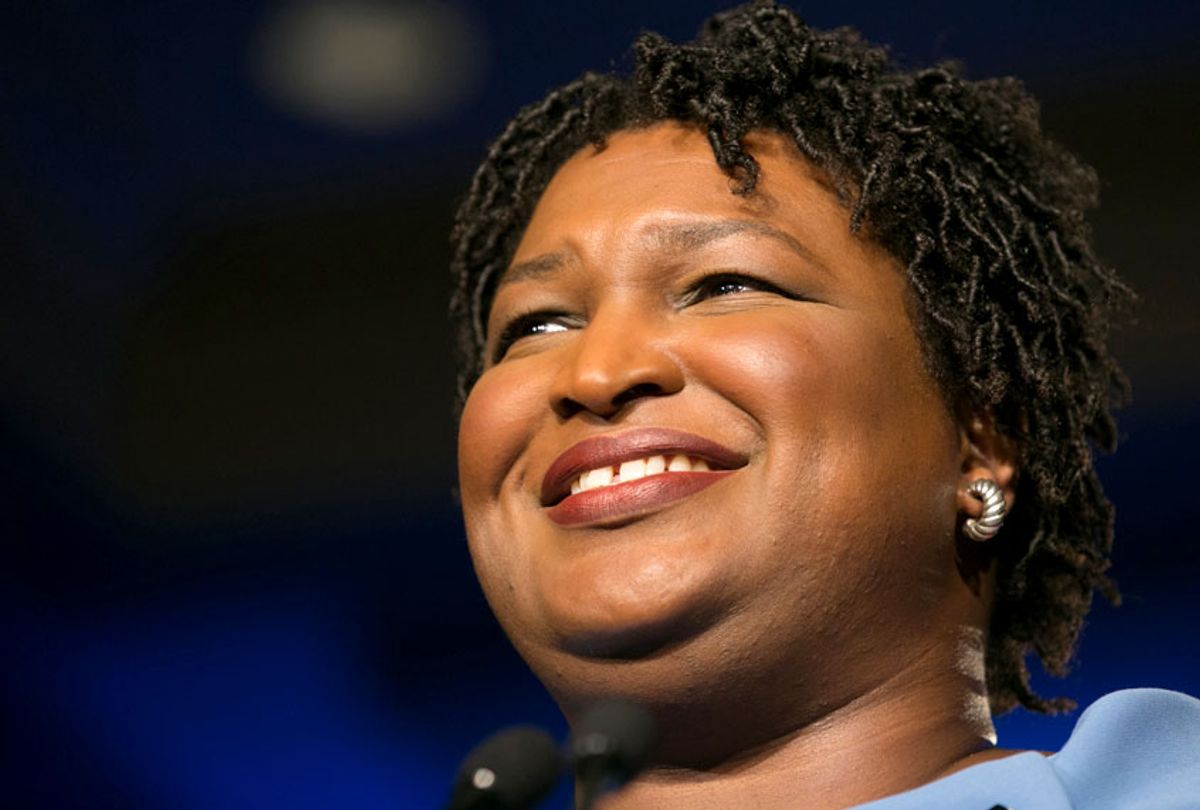A lawsuit filed by groups allied with former Georgia gubernatorial candidate Stacey Abrams alleges that the state’s election system violates the United States Constitution and voting rights laws.
The lawsuit, filed by Fair Fight Action and Care in Action, asks a federal judge to order changes to Georgia’s election system and could place the state’s elections under federal supervision for the next decade.
The suit cites the plethora of voting problems leading up to Abrams’ narrow loss earlier this month to former Secretary of State Brian Kemp, who oversaw the very election in which he was running. Chief among the issues were the more than 300,000 voters his office wrongly purged from the state’s rolls under the guise that they had moved, the tens of thousands of voter registration applications blocked by his office, and the closure of hundreds of polling sites.
The lawsuit says that fair elections “are the moral foundation of the compact between the government and its citizens. Georgia’s elections officials broke that compact.”
The two groups are asking a judge to block the state’s policy of purging voters who did not participate in recent elections from the rolls, ban the use of electronic voting machines that do not have a paper backup, and stop practices that disenfranchise voters.
The suit accused Kemp of failing to train local election officials, leading voters who could have cast provisional ballots to be turned away. The 66-page complaint also notes that Kemp purged a total of 2 million voters from the rolls for not voting frequently enough. The suit says that the purge is unconstitutional, though the Supreme Court ruled earlier this year that such purges are legal. The suit argues that they are not legal because Kemp, as the overseer of elections, used the purge for his own benefit.
The suit also notes that election officials discarded large numbers of absentee ballots based on questionable signature verification procedures and a high number of technical issues that plagued primarily minority areas.
A separate pending lawsuit also alleges that the state’s aging voting machines violate the Constitution because they are so susceptible to hacking and have no paper backup.
Unlike past lawsuits, the complaint against Georgia does not seek to rectify one problem but rather argues that the state systemically disenfranchises voters, particularly people of color, which violates voters’ rights to have their ballots counted.
The suit argues that the state’s election system violates the equal protection clauses of the 14th Amendment as well as the Voting Rights Act and the Help America Vote Act.
If the groups can successfully convince a judge that the state intentionally discriminated against voters of color, a federal judge could put the state under federal supervision, like the kind that the Supreme Court’s Shelby County v. Holder decision struck down in 2013. Since that part of the Voting Rights Act was gutted, Georgia has closed down more than 200 polling places.
The lawsuit would have to clear a high bar to prove racial discrimination but courts have already been willing to weigh in on certain issues in Georgia, including a federal court that suggested that the state’s machines are so insecure they may violate the Constitution. Other rulings ordered officials to accept ballots that had been thrown out due to missing or incorrect voter information.
“It is smart to make an argument that the system cumulatively disenfranchises voters,” law professor Richard Hasen wrote at Slate. “Rather than focusing on one of the hurdles facing voters, this suit lays out all of the hurdles together. Voting should not be an obstacle course, but the lawsuit claims that’s exactly what Georgia has created through a combination of misfeasance and malfeasance.”

Shares